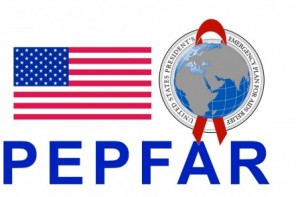Tina Rosenberg trumpeted Cash on Delivery (CoD) in 1500 words in the New York Times recently, and I’m really confused about why.
Here’s the summary: Aid is inefficient and forward-paid. Cash-on-delivery is paying for results once you’ve seen them. Aid should do that. (I don’t think aid works exactly the way Rosenberg describes so simply, but that’s for another time — and probably other authors, who actually work in the field I report on.)
To get a sense of how CoD would work, Rosenberg offers this example:
The United States and Malawi would draw up a five-year contract that specifies a set of payments and what Malawi must do to get them. These would be made public. The contract would set a baseline: perhaps the number of children expected to finish school next year. The year after that, and every year for five years, Malawi would receive $20 for every child who finishes school up to the baseline number — and, as an incentive to do even better, $200 for every child over that number. The results would have to be accurately measured by Malawi – since school records are often spotty, Malawi would administer a standardized test and count the number of students who took it, and make those results public by district or even school. Those numbers would be verified by independent auditors. There could be steep penalties for lying.
Leaving aside whether education is better thought of as aid or development (and avoiding repeating that debate) – there’s a few problems here. The most obvious is the lying problem. Very (very) far into the article, Rosenberg acknowledges that one of the few examples of pay-for-performance interventions, a vaccination program, was found (in a Lancet study) to inspire a lot of flat-out lying. Her answer, there as in this Malawi example, is independent auditors. I’m not sure why hiring a bunch of white guys from PriceWaterhouseCoopers is a better idea, or better use of resources, than what we already do – or that it’s all that different from what we already do.
But let’s ignore the obvious moral hazard stuff for a moment. Let’s talk culture and context, which usually gets the short shrift in conversations that start with, as she does, “This is nothing new in the world of business, of course.” First, context: Rosenberg/the CoD people propose an incentive structure that, while it surely makes sense to MBA grads, doesn’t strike me as making a whole lot of sense in Malawi. “Malawi” gets $20 per child that graduates – but which office, exactly, in Malawi gets that money? Does Malawi have the number of qualified teachers necessary to take on the swell in enrollment this idea incentivizes?
Second, culture. In Rosenberg’s retelling, we’re not actually talking about children finishing school. We’re talking about children taking a standardized test. Rosenberg (oddly) omits whether simply taking the test is enough to show that sutdents “finished” school, or whether students have to pass it, and what the standard for passing is.
Either way, who writes the standardized test? And, to zoom out even more, is bringing the standardized test to Malawi a good idea? There’s enough debate in our own country about the cultural biases in standardized testing. (And having found out how the best, most idiomatic English speakers among my Rwandan friends scored on the TOEFL, I could add a few more points to that debate.) How on earth could we expect to export this tool to Malawi in a manner that’s unarguably useful?
Because that’s the utility, right? What underlines Rosenberg’s argument for CoD is an unstated assumption that there’s a lot of disagreement about whether “aid” really “works,” but that we can all agree that performance pay works. We can’t. We haven’t. Rosenberg allows the reader to think that “fixing” aid is just an issue of changing tools (or easing process), but she doesn’t examine whether the tools upon which CoD would base performance “really work” – or are appropriate to the task, the context, or the culture. And she doesn’t acknowledge that even in America, there is a fierce and far from conclusive debate about the use of performance pay in the provision of public goods. (I’m pretty sure anyone with a kid in the DC school system could fill us in on this.)
So why all the fuss? Rosenberg thinks – oh dear – that CoD might save foreign aid. In the “at least Republicans won’t cut it so fast” kind of saving way, not necessarily the “Hey, here’s some aid that works” kind of saving way:
Paying for results is attractive. People don’t have to worry that the money has gone into some government official’s pocket, as taxpayers in wealthy countries won’t be sending money unless there are results. “This focuses on a few simple outcomes that people can understand,” says Birdsall [of the Center for Global Development, which is pushing the CoD]. “You can say to the taxpayer: mortality fell by this amount.”
And here’s the third problem: There’s nothing new here.
Or, put differently, can’t we already do that? Annual reports abound with information that allows us to make year-to-year comparisons on vital stats like this one. The reason it’s complicated to present those statistics is that there’s a lot of variables in the mix: US aid money isn’t the only money helping solve a problem. And even if we send that money differently, CoD-style, we’re still not the only money out there. No amount of M&E can satisfyingly disaggregate US dollars from DfID dollars, or NGO money, or even direct government spending (it does exist, even in places that need aid), in order to honestly say, “Your tax dollars decreased mortality 3.5 percent.”
The problem isn’t that aid unnecessarily convolutes outcomes (though it sure does sometimes feel like it convolutes process). The problem is that aid — and the difference it makes — is complicated. Pretending you can make it as simple as Birdsall wants is dishonest — which, given that the call is for greater transparency (read: institutional honesty), is ironic.
There’s one more thing that no one probably wants to say: Aid isn’t apolitical. Aid is one of the tools we keep in our diplomatic tool kit. It is very often a carrot to get governments to do something we, for our own reasons of national interest, want them to do. The reverse is that we are, at times, willing to ignore results no one likes in exchange for other things we’ve prioritized more highly. This isn’t the “I love my cushy aid life and I’m dependent on the system so I look the other way and I’m the one who signs the checks” kind of ignoring. It’s the collective we, with a national (U.S.) objective — the “we’ll fund your education access expansion plan because we think you might make a strategic place for a military base in the next decade or two, according to my top Pentagon advisors” kind of ignoring.
The point is: Pretending that aid is only about the deliverables that are its objects is naive.
And therein is the irony for Rosenberg: If she wanted to make an argument that would satisfy Republicans bent on cutting aid, why not point out that aid is national security tool? There are plenty of good examples even a Tea Partyer could love — money we’ve given to Sudan and Pakistan in exchange for cooperation in the ‘war on terror,’ say.
One final thought: This all feels somehow familiar. Maybe it’s simply an uncomfortable rhetorical similarity, but there’s something kind of “fee-for-service” sounding about “pay-for-performance.” The last time we had such a clear and simple moment of unencumbered obviousness for fixing poor countries, we ran them into the ground with Structual Adjustment Programs. (Which, any article on aid and development might like to remind, are a big part of what these countries are recovering from.)
I’m not anti-CoD. I love writing about innovations in policy, and I’m always interested to see how even murky ideas can help move a debate. I think the idea probably didn’t get the level of attention it deserves; Birdsall has been working on this, and been in conversation with high-level players in aid and development, for a long time. But this article didn’t convince CoD is the right way to go; I’m afraid it may just muddy already confused waters.




Hi Jina,
I can’t speak for American education, but I know that the British education system has its share of failing schools. It is also distorted by the all the same kind of skewed incentives that you’re lambasting. But, here’s the thing, it’s still a million miles better than the education system in Malawi. I don’t think anyone pretends CoD Aid will deliver even close to perfect results, especially in something as fuzzy to measure as education, but let us not let the best be the enemy of the even slightly better.
Bureaucracies the world over really struggle to consistently deliver quality outputs throughout their entire domain. But, to continue with the Malawian education example, getting in Western bureaucrats to tell their Malawian counterparts what to do hasn’t worked very well, and tends to p*ss off the hosts somewhat. Most of the problems these bureaucracies deal with are not rocket science; there’s just no incentive to deliver or to manage better. Aid dollars get spent in endless rounds of meetings and workshops, in between which, precious little gets done. CoD aid says: “We’re fed up with this nonsense. You sort out your own problems, and we’ll pay by results.”
Even if there is a lot of cheating, I guess the hope is that enough changes are nonetheless delivered to make the exercise worthwhile. Importantly, also, by publicising the funds available I think it would take away the commonest excuse of governments that they don’t have enough money. The populace would know that there is $X available per educated child etc and demand the service. To start with the government would pluck the low hanging fruit, claim for stuff paid for by other donors and/or done by NGOs (if you calibrate it right, this would be less than the current budget spent on workshops and other guff), but then in order to get any more they’d have to do some real work.
I think the existing system is so ****ed up that it’s really worth trying, although I too have my doubts that the incentives will work at the lower end of the ladder: absentee teachers are going to continue to be a problem. But building real country ownership would be a first. And it might also put out of work a few aid effectiveness officers, which would have to be a good thing!
MJ
The fact that the British ed. system is “a million miles better” than the one in Malawi is nice — but probably has as much to do with Britain’s functioning economy, strong welfare state, citizen education, and century-long position as a global power (however it waxes and wanes, it’s never disappeared). I’m not sure that means this is a “best is the enemy of the better” problem. It might be more a “this way is the opposite of kumqwats” problem.
I totally get the feeling behind CoD — “we’re fed up with this.” But I still think it oversimplifies solutions while imposing its own version of nonsense — a global internal auditing outfit to find out if Malawi is lying about student enrollment? Why would their auditing system be any better than the one that’s come before?
There’s nothing preventing anyone from publicizing, right now, how much money is put toward which aid efforts. In fact, there are some very good efforts to do that (think AidData.org). We don’t need CoD for more transparency. We just need people to look up those numbers. Also not rocket science. You need someone to bridge the gap you’re talking about — you’d literally need an outside organization to publish information that says, “There is X amount of money for education, do you know where it went?” in these places, because the government is not going to do it. This is not a problem of the “third world”; think about the number of things Americans don’t know their money was spent (or not) on.
There’s not a person, who’s not a diplomat, who is satisfied with how aid works. That doesn’t mean that whatever you say after, “I’m so fed up,” is the right fix.
You bring up some excellent points, Jina. I think it is worth the wait to learn how it works in the pilots that are being rolled out by DFID. The issue of metrics will persist, but is it possible that COD can make them more effective by having outside auditors? Either way, I am definitely in the show-me-it-works camp. At the very least, I do think that COD can be effective in some situations/projects/nations/regions.
You are, of course, right that whatever comes after “We’re fed up” is not necessarily the right answer – unless it’s a cold beer – but I think CoD aid is better than that.
Your point about data slowly being made available is a good one, but that data needs a lot of interpreting: see Ranil’s recent post. $20 per child enrolled in a school is a lot simpler statistic to deal with. It’s also a promise to pay, whereas at present the govt can always claim that the donor wanted a certain workshop etc. Under CoD aid that kind of excuse is also dispensed with.
I do, however, think the education example is a bad one. It’s also hard for me to comment in detail outside of my sector, but in natural resources management I can certainly see room for CoD aid to concentrate minds on actually delivering some outputs, e.g. that’s one of the most attractive things about REDD if the intl carbon markets can be got to work properly.
I think there are many problems with “aid”. CoD could solve some of them, especially some related to donor behaviour. It definitely won’t solve all the problems, and will almost certainly introduce some of its own, but, to me, I think it would be progress in the right direction. In that sense it is worth trying, we may just need another cold beer afterwards.
I love that this blog has somehow cultivated a readership of beer-lovers. God bless you all.
True that the data needs interpreting (which is also true under CoD. Not magic). I suppose the “they wanted a workshop” thing is a possibility, but strikes me as not the major problem? Not sure, though; just an impression.
Yeah, maybe the article should have chosen a better example (sector) to game the hypotheticals… I think there’s more incentives built into the system, on all sides, than CoD can necessarily account for, but who knows. Tom’s got the right attitude — let’s try and see — but I think trying with a healthy skepticism is better than trying with a cup of Kool-Aid in hand…
A cold beer, however, is always legit.
Sure. We shouldn’t bet the house on CoD. And I’ll be as interested as anyone when the results start to roll in in a few years time: seductive ideas don’t always yield the results we were hoping for. But equally, I am frustrated at the self-serving (this blog excepted) arguments put up by much of the aid industry against even trying it, especially given what a mess things are in now. I’m with Nancy and the other CGD folks: time to just get on and try it.
MJ
President, Beer Lovers Love Jina
I hear you on all fronts — in fact, I think I sound about the same when talking about the UN Peacebuilding Commission, after my long trip through its locales last summer — don’t bet the house, but it’s better than not trying it.
One day, may we raise a glass, or several, of the Good Stuff and burble our way through all of this…
It seems to me that there are some fundamental lessons that aid/development (writ large) doesn’t seem willing to face: Namely, you have to actually support the public sector, building the capacity of the government to deliver services themselves (and not set up parallel NGO-run systems). You also have to eliminate user fees unless you don’t care that the poorest of the population will be excluded from any chance of economic development.
However, this route to development is full of challenges, it takes time and- most damning of all- it requires a different kind of “sustainability”- one on behalf of the donor community to not “change priorities” every funding cycle to chase the next sexy hot button topic.
Barring recognition of this, I think the development machine will keep on churning out conference after meeting after report that no one reads (except for the Beltway Bandits who were awarded their consultancy contract!!).
I love the idea of accountability based financing- the Global Fund has done well on that, even accounting for recent challenges. But I think you’re spot on Jina- seems a bit too much like ghosts of SAP’s past.
Oooh, the donor fad fetish! Excellent point. That’s quite the…what’s the phrase… paradigm shift? Right on, Joan.